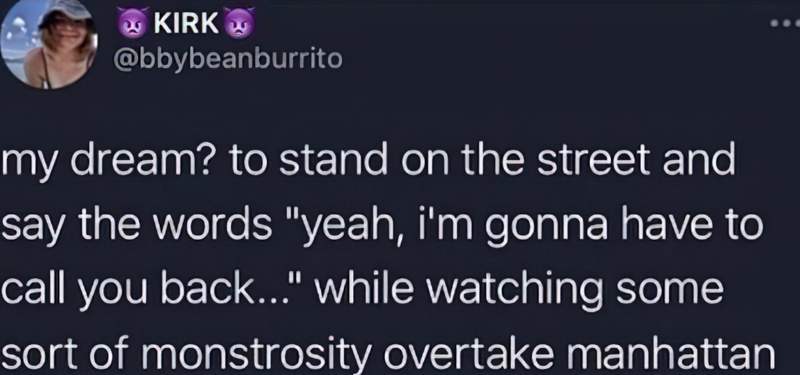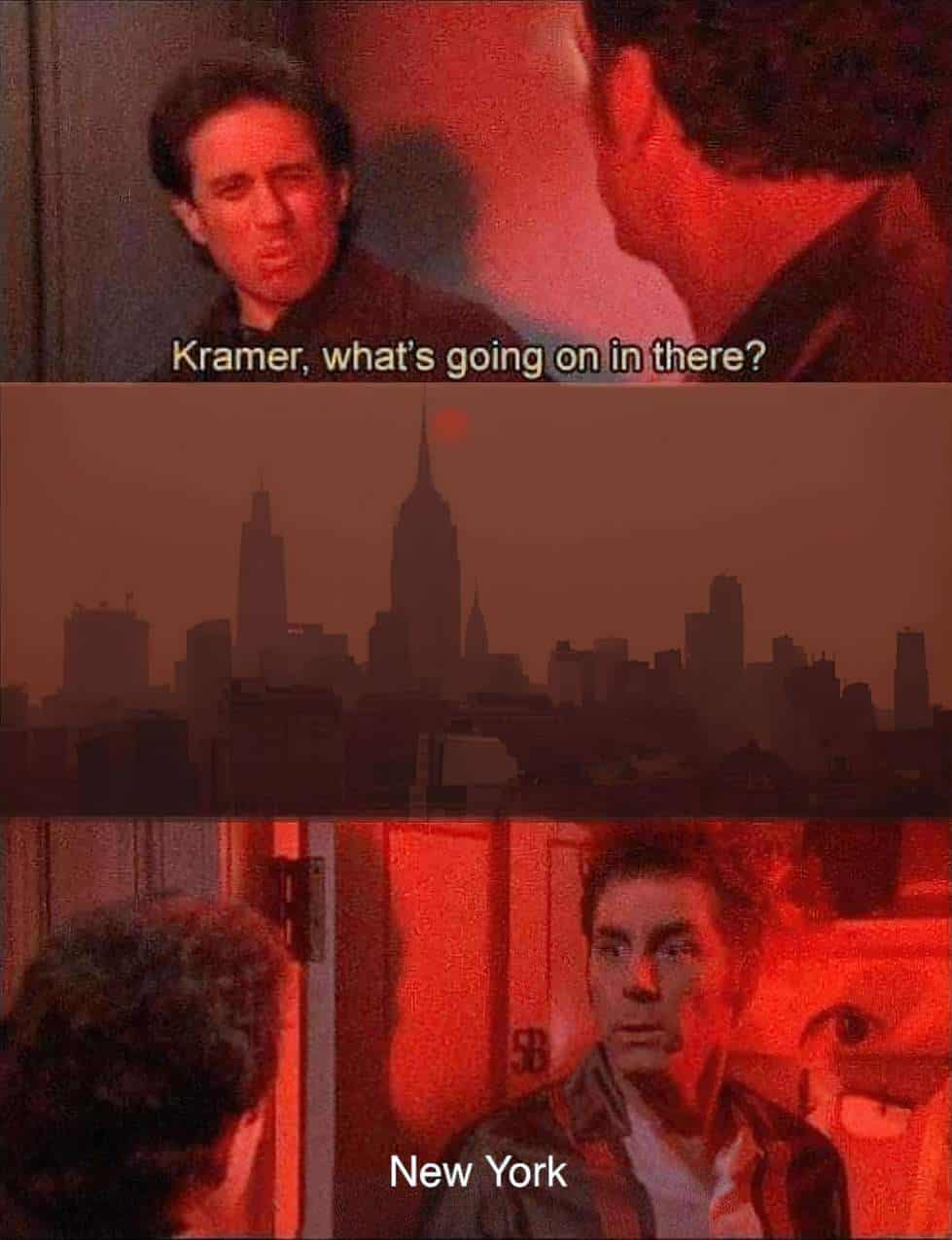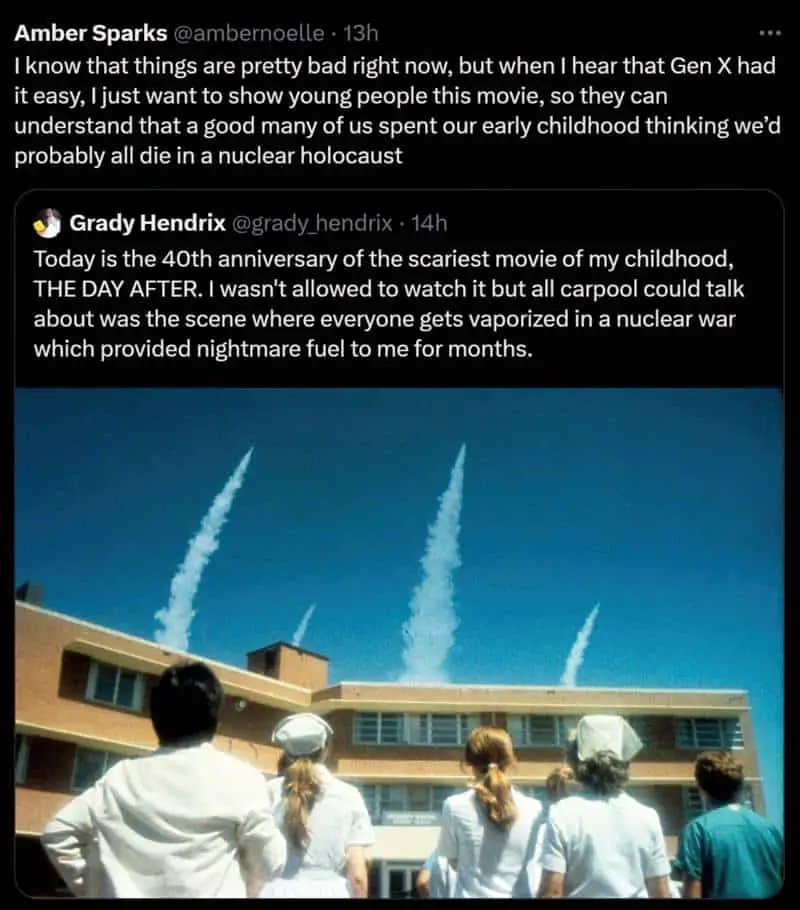“Just After Sunset” is a 2007 short story by Stephen King. This story was first published in Postscripts Magazine, issue number 10 and subsequently anthologised in Just After Sunset (2008). In this post 9/11 story, a young woman attends her boyfriend’s graduation party at the boyfriend’s luxury mansion in Connecticut. In the late afternoon, they see something terrible mushroom over the New York City skyline.

CHARACTERISATION IN “GRADUATION AFTERNOON”
Like many writers of the 20th century and earlier, Stephen King likes to set up the characters with a little backstory before embarking upon the rest of the story. It’s popular now for writers to launch straight into the action, sprinkling their backstory in strategically, aiming to avoid a slowdown in pace. Given Stephen King’s popularity, it would seem readers quite like this way of telling a story, fashionable or not.
King manages chunks of character exposition where other writers might fail because:
- His characterisations are sufficiently interesting in their own right
- While sketching character, he’s setting up suspense
- (And let’s face it) He has a large, loyal following who read anything he writes
As applies to many Stephen King stories, there’s a dichotomy in “Graduation Afternoon” between insiders and outsiders. Our viewpoint character is the outsider, as we are.
King divides his female characters into the young nubile, empathetic young woman versus the archetypal witch, who literally gets called ‘hag’ near the end (in case we missed it). This division of women can also be seen in, say, “The Mist“, in which Mrs Carmody is the witch, juxtaposed against Amanda Dunfrey, the attractive younger woman in the prime of her child-bearing years. (Miss Dunfrey is even a school teacher, underscoring her perceived aptitude for motherhood.)
In “Graduation Afternoon”, the young, attractive woman is Janice, juxtaposed against the witch-like archetypes of her boyfriend’s family.
Cast of Characters
Viewpoint Character: Janice Gandolewski
Eighteen-year-old Janice will graduate from Fairhaven High in two weeks’ time. She comes from a working class family herself. We know this about Janice even before we are told her family runs a restaurant; the opening paragraph opens firmly inside the point of view of Janice. Stephen King could have opened with something like this:
Janice stood at the foot of the driveway of her boyfriend Buddy’s house — a grand mansion with a tennis court and swimming pool. The house was named Harborlights.
Instead he opens with:
Janice has never settled on the right word for the place where Buddy lives. It’s too big to be called a house, too small to be an estate, and the name on the post at the foot of the driveway, Harborlights, gags her. It sounds like the name of a restaurant in New London, the kind where the special is always fish.
“Graduation Afternoon” by Stephen King
Despite her socioeconomic status, and the racism which results from having a name ending in -ski, Janice’s beauty and smarts are an entry ticket into a world which she knows is not her own. For Janice, this relationship is a temporary thing. He life as she knows it is about to end. This family won’t accept her for the long-term anyway. This is the last summer she will have with her wealthy boyfriend. She’ll be heading to the local state tertiary institution (“State”).
Janice knows her relationship with Buddy won’t last, but she still has time to fantasise. Walking through the grand house, she looks out across the view towards New York City and thinks:
It could be my city someday, I could call it home, before an enormous spark lights up there, as if some God deep in the machinery had suddenly flicked His Bic.
“Graduation Afternoon”
The meaning of this sentence isn’t entirely clear to me, partly because Janice’s direct thought is italicised, but Stephen King flicks out of that, back into close third person narration. In any case, on second read this observation about the lit-up city and the Bic lighter clearly foreshadows the ‘light up’ of the city about to come. (Though does it even count as foreshadowing if the actual thing happens hot on the heels of the foreshadow? An interesting question. Let’s just call it an ‘introduction’.)
Cookie Cutter Love Interest: Bruce ‘Buddy’ Hope
We learn far less about the boyfriend but we don’t need much. Imagine a wealthy jock type with a maternal line of wealthy white women who are tools of the patriarchy, hellbent on maintaining the socioeconomic privilege of the family via their son, whose love life is very much their business.
Buddy was sent to ‘The Academy’ rather than to Fairhaven High, which is the public school Janice attends.
Why does Janice ‘gag’ at the name of the house? Houses with names are by their nature ostentatious and grandiose. But perhaps Janice feels the name is cheap — more glitter and gloss than substance. On top of that, perhaps she is nervous because she has a preternatural sense of what is to come — a mushroom cloud which will be seen from Buddy’s house precisely because of its view of harbour lights.
At the end of summer, Buddy is lined up to attend Princeton. Before then, it’s been decided that he will be hiking the Appalachian Trail. Janice has sensed this is to extricate him naturally from her grip.
Father: Tom Hope
We only know Buddy’s father an older version of the person Buddy is likely to turn into: Continuing to play polo until he puts on too much weight in middle age. He refinishes Colonial rockers out in the carriage-house (a rich guy’s shed).
These multi-floor garages have become the perfect framework for second homes and garage apartments, considered accessory dwelling units. Some have been repurposed as industrial workshops, artists’ studios, and even underground clubs.
What Is A Carriage House?
Crone: Gran Hope
The grandmother doesn’t like Janice because she’s worried Buddy will get Janice pregnant, and then the family will be stuck with a woman of lower class than she perceives her grandson to deserve. She says what she thinks with little self-editing: ‘If it enters her head, it exits her mouth.’ Despite being the matriarch of a wealthy family, this old woman is crass.
Actually, Gran Hope is likeable because she speaks her mind. It’s amazing how honesty, even toxic honesty, can work to endear a character, especially an elderly or otherwise powerless character. Although Gran Hope is Stephen King’s named-witch-on-the-page, she is what I call the Burlesque Witch Archetype — the sort of old lady you see in cartoon form on your great aunt’s Facebook feed. These ladies cackle and drink wine and wear bikinis and speak their minds without caring.
Evil Witch: Mrs Hope
Buddy’s mother is young enough to have real power in the household, which is why she is more formidable than the grandmother. She appears only long enough to slap Janice for voicing that the mushroom cloud in the distance over NYC is clearly an atomic bomb. It is verboten, in this household, to speak the truth. (Unless you’re Gran Hope.)
WHAT HAPPENS IN “GRADUATION AFTERNOON?”
Since the wealthy world of Buddy Hope is foreign to most of us, it makes sense to tell the story from the viewpoint of Janice. As the title suggests, the story takes place at Buddy’s graduation party. Janice plans to have her own party, much smaller, two weeks later. She will then go to ‘educational halls far less grand or traditional’ in the hope of becoming a journalist.
Through Janice’s imaginings of the future, this story covers a much longer timespan than the graduation party itself. Although it is the boyfriend with a symbolic last name of ‘Hope’, it is Janice who lets us see into the eighteen-year-old lovers’ imagined future together:
Short term:
‘Tonight the kids will go out and party down in a more righteous mode. Alcohol and not a few tabs of X will be ingested…’
Long term:
‘By the age of thirty-five or so, she guesses he will have lost most or all of his enthusiasm for eating pussy and will be more interested in collecting coins. Or refinishing Colonial rockers, like his father does out in the—ahem—carriage-house.’
Time is flexible in “Graduation Afternoon”, flitting from the past (via flashbacks), to the present (what’s happening at the party) and forward to an imagined future. Nothing much is happening at the party itself — for the majority of the story, the party is a run-of-the-mill affair.
‘Bruce’s mother comes out on the patio and stands next to [Janice], shading her eyes. She is wearing a new blue dress. A tea-dress. Her shoulder brushes Janice’s and they look south at the crimson mushroom climbing, eating up the blue. Smoke is rising from around the edges — dark purple in the sunshine — and then being pulled back in. The red of the fireball is too intense to look at, it will blind her, but Janice cannot look away. Water is gushing down her cheeks in broad warm streams, but she cannot look away.’
“Graduation Afternoon”
From here they can see that New York City has been bombed. But only Janice is sufficiently clear-eyed to see it. Buddy’s mother refuses to believe it, and takes out her ire on the possible daughter-in-law she doesn’t want.
The story quickly draws to a close, after Janice is slapped by Buddy’s mother for ‘joking’ about a nuke. In slow-motion, we see Gran walking down the path like a ‘dispossessed warhag’.
SLOW DOWN OF PACE: THE EPIPHANY
The epiphanic moment takes place over the final paragraph, as Janice realises the impact of the bomb. (Note: the epiphany isn’t realisation that the cloud is a bomb — the realisation is that nothing will ever be the same.)
[Janice] thinks about the hike Bruce and his friends won’t be taking. She thinks about the party at Holy Now! they won’t be attending tonight. She thinks about the records by Jay-Z and Beyoncé and The Fray they won’t be listening to—no loss there. And she thinks of the country music her dad listens to in his pickup truck on his way to and from work. That’s better, somehow. She will think of Patsy Cline or Skeeter Davis and in a little while she may be able to teach what is left of her eyes not to look.
“Graduation Afternoon”
When authors list all the things that are not (or will not be) happening, they are slowing the pacing down to a complete stall. This is a slowness of pace which can only be emulated on screen with a complete still. It’s not even slow motion. It’s a complete stop. This is the moment which bifurcates Janice’s life into Before and After the Bomb. (I wonder if this bomb would be named Sunset by Americans, hence King’s collection title.)
Why Tell The Story of The Bomb Through The Viewpoint Character of Janice at a Graduation Party?
“Graduation Afternoon” has hermeneutic (interpretive) closure. We know a bomb has been dropped, and that the world will never be the same again.
But even if the bomb had not been dropped, Janice’s world was never going to be the same again anyhow. She and her boyfriend would be attending separate colleges, leading bifurcated lives. This dalliance into the world of the wealthy class is nothing more than temporary — a fantasy life.
The bomb is an outside representation of the social bifurcation Janice currently endures happening in real time at a graduation party, and of which she is keenly aware.
COMPARE AND CONTRAST
In some ways, Stephen King’s “Graduation Afternoon” is like the modern, horror equivalent of Katherine Mansfield’s “The Garden Party” (1921).
- Both short stories are about class differences and how death is a great leveller.
- In both, the viewpoint character is a young woman about to enter the adult world. But she witnesses something which sears her.
- Both short stories are indirect reactions to real-world war events: In the case of Mansfield, the horrors of WW1 (in which she lost her brother). In King’s case, 9/11.


For me, another Gen Xer, this is the scene which affected me. It was shown to us one sunny afternoon during Year 9 English class but the rest of the class was misbehaving so I wasn’t able to see what happened next. The woman losing control of her bladder stuck with me, and it took a long time to find the name of the film.
